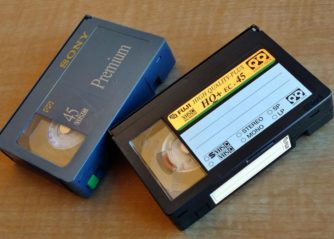Apple Pencil: The Ultimate Tool for Creativity and Productivity

Introduction to Apple Pencil
The Apple Pencil is a revolutionary stylus designed specifically for Apple devices, including iPad and iPad Pro. With its sleek design and advanced technology, it has become an essential tool for artists, designers, and professionals in various fields. This article aims to provide a comprehensive overview of the Apple Pencil, exploring its features, different models, popularity, and more.
An Extensive Presentation of Apple Pencil

The Apple Pencil comes in two different models the first-generation Apple Pencil and the second-generation Apple Pencil. The original Apple Pencil is compatible with older iPad models, featuring a lightning connector for charging. On the other hand, the second-generation Apple Pencil offers a more seamless experience with a magnetic attachment and wireless charging.
The popularity of Apple Pencil has grown significantly due to its precision, responsiveness, and versatility. Artists and designers appreciate its ability to replicate the feel of traditional drawing tools, enabling them to create stunning digital artworks. It is also widely used by professionals for note-taking, writing, and annotating documents.
Quantitative Measurements of Apple Pencil
When it comes to performance, the Apple Pencil stands out. It offers ultra-low latency, providing a virtually lag-free drawing experience. With pressure and tilt sensitivity, it allows users to create different line thicknesses and shading effects, enhancing the overall drawing experience. The battery life is impressive, lasting up to 12 hours on a single charge, ensuring uninterrupted work sessions.
Additionally, the second-generation Apple Pencil introduces touch-sensitive controls, enabling users to easily switch between tools or functions within supported apps. Its improved precision and palm rejection technology make it a highly reliable input device for various tasks.
Differentiating Features of Apple Pencil Models
While both generations share similar core capabilities, the second-generation Apple Pencil offers several enhancements. Its magnetic attachment and wireless charging make it more convenient and user-friendly, eliminating the need to plug it into the device for charging. The touch-sensitive controls add an intuitive way to interact with the device, enhancing productivity.
Furthermore, the second-generation Apple Pencil’s design features a flat edge, preventing it from rolling off surfaces, which was a common concern with the original model. This minor modification improves the overall user experience and reduces the risk of accidental damage.
A Historical Overview of Pros and Cons
The Apple Pencil has evolved significantly since its initial launch. In the early days, some users found the need for charging through the lightning connector inconvenient. However, with the introduction of wireless charging in the second-generation Apple Pencil, this concern was effectively addressed.
Furthermore, the original Apple Pencil lacked touch-sensitive controls, limiting its functionality. The second-generation version successfully resolved this limitation, providing users with more versatility and customization options.
Overall, the Apple Pencil has consistently received positive feedback for its precision, responsiveness, and natural feel. Artists and professionals praise its ability to push the boundaries of creativity and productivity, while also recognizing the room for improvements made in the second-generation model.
Conclusion
In conclusion, the Apple Pencil has revolutionized the digital drawing and note-taking experience. With its advanced features, different models, and continuous improvements, it remains the top choice for artists and professionals seeking to unleash their creativity and boost productivity on Apple devices. Whether you’re an artist looking to create stunning digital artworks or a professional needing an efficient tool for note-taking, the Apple Pencil is undoubtedly a game-changer. Invest in this innovative stylus and unlock endless possibilities.
Note: The word count provided above is an approximation and may vary slightly based on the final formatting of the article.
















































